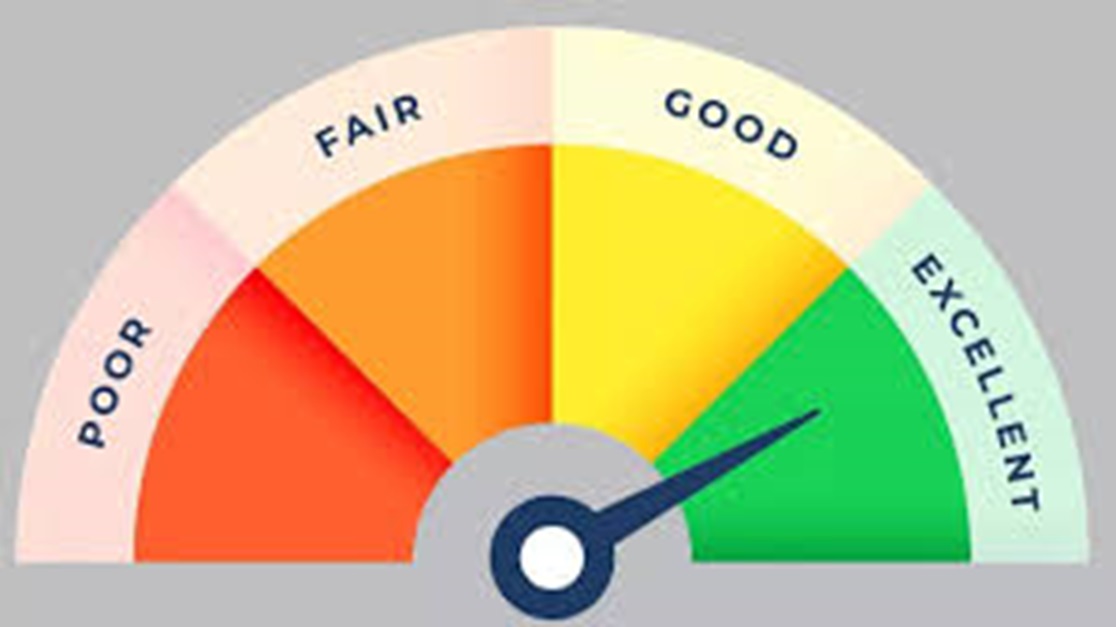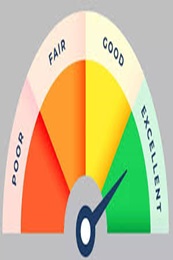How to Improve Your CIBIL Score from 600 to 750: A Step-by-Step Guide
April 04, 2025

What is a Good CIBIL Score?
The lowest CIBIL score is 300 and the highest CIBIL score is 900. A good CIBIL score typically falls in the range of 700 to 799, which increases your chances of getting loans and credit cards with favourable terms. A score above 750 is considered excellent, meaning you are a low-risk borrower in the eyes of banks. Having a good score allows you to access higher credit limits, lower interest rates, and quicker loan approvals. Ready to take your score above 750? Consider the tips below.
Why Do You Need to Have a Good CIBIL Score?
A good CIBIL score isn’t just a number—it’s your financial passport to better loan approvals, lower interest rates, and greater financial flexibility. Banks use this score to judge your creditworthiness, meaning a high score (750+) makes it easier to secure home loans, car loans, vehicle loans, or even a premium credit card without hassle. It also strengthens your negotiating power, helping you secure lower EMIs and better repayment terms.
A poor score, on the other hand, can lead to loan rejections or sky-high interest rates, limiting your financial options. Whether you’re planning to buy a home, start a business, or handle an emergency, a strong CIBIL score ensures you have access to affordable credit when you need it most. In short, your CIBIL score reflects your financial discipline—keep it high, and your financial future stays bright.
That said, if your CIBIL score is average, say 600 or 650, you may still get loans. Check out Ujjivan Small Finance Bank’s range of loan offerings. We offer Home Loans, MSME loans, Micro Loans, Agriculture Loans and more at competitive rates and flexible repayment tenures. Visit our website, select the product of your choice and apply today. Rest assured; you will enjoy a seamless loan journey. Now coming back to the point – let’s find out how to take your CIBIL score from 600 to 750.
Taking Your CIBIL Score from 600 to 750
Step 1: Check Your Credit Report for Errors
Before making improvements, check your CIBIL report for mistakes. Sometimes, incorrect entries like an unpaid loan (which you’ve already paid) or a wrong credit limit can drag your score down.
Example: Ramesh applied for a home loan but got rejected due to a low CIBIL score. On checking his report, he found an old unpaid credit card bill, which was actually a bank error. He raised a dispute, got it corrected, and his score increased by 40 points.
Action Plan: Get a free CIBIL report once a year and dispute errors immediately.
Step 2: Pay Your Bills on Time
Payment history makes up around 35% of your credit score. Late payments can bring it down significantly.
Example: Sneha used to pay her credit card bill after the due date. Once she started paying on time, her score improved by 50 points within six months.
Action Plan: Set auto-debits or reminders for EMI and credit card payments.
Step 3: Reduce Your Credit Utilization Ratio
Credit utilization refers to the percentage of your credit limit that you use. If you have a credit limit of ₹1,00,000 and you use ₹80,000, your utilization is 80%—which is too high.
Example: Amit’s CIBIL score was stuck at 650. He was using 75% of his credit limit every month. He reduced it to 30%, and within three months, his score jumped to 720.
Action Plan: Keep credit utilization below 30% to improve your score.
Step 4: Diversify Your Credit Mix
Having different types of credit—like a mix of personal loans, credit cards, and home loans—helps boost your score.
Example: Priya had only credit card history. She took a small personal loan and repaid it on time. Her credit mix improved, and her score moved from 610 to 740 in a year.
Action Plan: Maintain a mix of secured (home/auto loan) and unsecured credit (credit cards/personal loans).
Step 5: Avoid Multiple Loan Applications
Every time you apply for a loan, banks make a “hard inquiry,” which reduces your score slightly. Too many applications make you look credit-hungry.
Example: Rahul applied for three personal loans in a month, which dropped his score by 25 points. He waited for six months before reapplying, allowing his score to recover.
Action Plan: Space out your loan applications and apply only when necessary.
Step 6: Settle Outstanding Dues
If you have old unpaid loans, settle them to regain lost points.
Example: Kavita had an unpaid education loan from five years ago. Once she settled it, her score increased by 60 points.
Action Plan: Negotiate settlements for old debts and ensure they reflect as ‘Closed’ in your report.
Final Thoughts
Improving your CIBIL score isn’t an overnight process, but with consistent efforts, you can move from 600 to 750 in 6-12 months. Follow these steps, be patient, and watch your financial credibility grow!
Kick-start your financial journey with Ujjivan. Save more with our high-interest Savings Account and Deposit products. Need cash for your business or personal needs? Apply for MSME Loans or Micro Loans with us – we offer competitive rates and quick disbursal. We also offer vehicle loans and home loans tailored for your unique requirements. Experience a smooth banking journey with Ujjivan SFB!
FAQs
1. How long does it take to improve my CIBIL score from 600 to 750?
It typically takes 6 to 12 months, depending on your credit history and financial discipline. If you pay bills on time, reduce credit utilization, and maintain a healthy mix of credit, you can see improvements sooner.
2. Does checking my CIBIL score frequently lower it?
No, checking your own credit report is a soft inquiry and does not impact your score. However, when banks or banks check your report during a loan application, it counts as a hard inquiry and may lower your score.
3. What is the fastest way to increase my CIBIL score?
The quickest ways include clearing outstanding dues, making timely payments, and reducing your credit utilization below 30%. Disputing errors on your report can also lead to an immediate boost.
4. Can a low CIBIL score prevent me from getting a credit card?
Yes, banks may reject credit card applications for low scores. However, you can apply for a secured credit card (against an FD) and use it responsibly to rebuild your credit score.
5. How many points can I gain by paying my credit card bills on time?
Timely payments can increase your score by 50-100 points over six months, depending on your previous payment history and outstanding debts.
6. Will closing an old credit card improve my CIBIL score?
Not necessarily. Closing an old credit card can reduce your credit age and increase your credit utilization, which may lower your score. If it has a long history, it’s better to keep it active.
7. How does a loan settlement affect my CIBIL score?
If you settle a loan instead of paying it in full, it gets marked as ‘Settled’ in your report, which negatively impacts your score. Always try to repay in full to maintain a good credit history.
8. Does increasing my credit limit help improve my CIBIL score?
Yes, if you maintain the same spending pattern, increasing your credit limit can lower your credit utilization ratio, which positively impacts your score.
9. Can I get a home loan with a CIBIL score of 600?
It’s difficult but not impossible. Banks may approve loans at higher interest rates or ask for a co-applicant with a better score. It’s advisable to improve your score before applying.
10. Will taking a personal loan improve my CIBIL score?
Yes, if you repay it on time, it adds to your credit mix and builds a positive repayment history, boosting your score over time.
Latest Blogs

How to Improve Your CIBIL Score from 600 to 750: A Step-by-Step Guide
April 02, 2025
Your CIBIL score is like your financial reputation—banks check it before approving loans or credit cards. If your score is hovering around 600, you might face difficulties in securing credit or may get loans with higher interest rates.

What Happens When You Leave Your Savings Account Unused?
April 01, 2025
Imagine waking up one day to find that your hard-earned money is locked away and inaccessible. Sounds stressful, right? This is precisely what happens when you leave your Savings Account inactive for too long.

Unified Pension Scheme (UPS): Everything You Need to Know
March 29, 2025
The Pension Fund Regulatory and Development Authority (PFRDA) has announced the Unified Pension Scheme (UPS) will be operational from April 1, 2025.

What Does DPD Mean in CIBIL Report?
March 27, 2025
Your CIBIL report is like a financial passport that determines your credibility as a borrower. Whether you’re applying for a home loan, personal loan, or even a credit card, lenders will carefully review your CIBIL report before making a decision.

Are You Eligible for Section 80EE or Section 80EEA Tax Benefits?
March 26, 2025
Imagine this: Ravi, a young IT professional in Bangalore, has just booked his dream home. While planning his finances, he hears about tax benefits under Section 80EE and Section 80EEA but is confused about which one applies to him.



